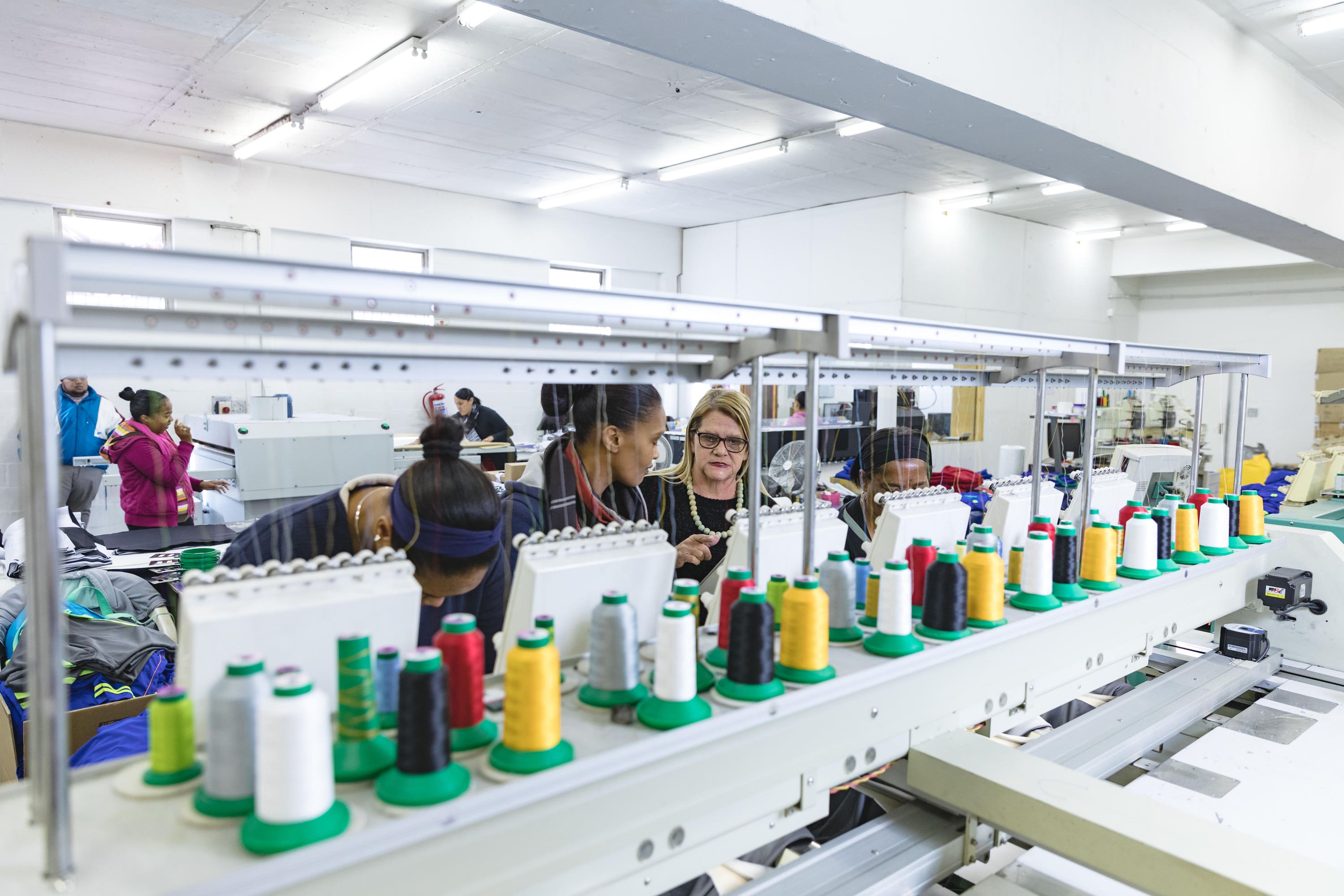‘Unimpressive progress’ made by fashion brands in climate crisis – report
The Fashion Transparency Index reveals the industry has a ‘long way to go’ on climate change and global inequality issues.

Your support helps us to tell the story
From reproductive rights to climate change to Big Tech, The Independent is on the ground when the story is developing. Whether it's investigating the financials of Elon Musk's pro-Trump PAC or producing our latest documentary, 'The A Word', which shines a light on the American women fighting for reproductive rights, we know how important it is to parse out the facts from the messaging.
At such a critical moment in US history, we need reporters on the ground. Your donation allows us to keep sending journalists to speak to both sides of the story.
The Independent is trusted by Americans across the entire political spectrum. And unlike many other quality news outlets, we choose not to lock Americans out of our reporting and analysis with paywalls. We believe quality journalism should be available to everyone, paid for by those who can afford it.
Your support makes all the difference.The vast majority (94%) of major fashion brands don’t disclose what fuel is used in the manufacturing of their clothes, according to a new report.
The Fashion Transparency Index also revealed that 99% of brands don’t state publicly the number of workers in their supply chains being paid a living wage.
Published by non-profit group Fashion Revolution, the Index reviews and ranks 250 companies according to what information they disclose about their social and environmental policies, practices and impacts.
Transparency on manufacturing fuel use is critical, Fashion Revolution said, in helping brands decrease their reliance on coal and transition to cleaner forms of energy to mitigate the effects of climate change.
The eighth edition found “unimpressive” progress has been made, with firms achieving an overall average score of 26%, up just 2% from last year.
However, two out of 250 scored 80% or higher for the first time, including a luxury brand (Gucci), and more than half (52%) are now disclosing their first-tier supplier lists, compared to 32% in the first edition of the Index.
“The unimpressive progress here is worrisome in the face of deepening social inequality, environmental destruction and various incoming legislations,” said Liv Simpliciano, Fashion Revolution’s policy and research manager.
“We are pleased that a minority of brands are finally scoring 80% or higher but even 100% transparency is only the starting point and it seems many major fashion brands have yet to even show up to the race.”
Italian brand OVS, which came top of the Index in 2022, scored highest again this year with 83%, followed by Gucci at 80%.
At the bottom end of the scale, 18 major brands scored a 0% rating, up from 15 brands last year, including Fashion Nova, Max Mara, Savage x Fenty and Tom Ford.
The report found 88% of brands do not disclose their annual production volumes (an increase from last year’s 85%), which it said is key to tackling the growing problem of clothing waste.
Only 7% of companies publish their supplier wastewater test results to address the impacts of water pollution on garment workers, local communities and the environment.
“Reporting is essential as it allows the public access to information on fashion brands’ policies and commitments,” Simpliciano said.
“Without access to information, affected stakeholders, citizens, customers and civil society more broadly cannot hold them accountable for upholding their commitments.
“In the absence of disclosed evidence, it is difficult to understand if the fashion industry is turning things around.”
She suggested that ‘greenhushing’ – where brands are “deliberately quiet about how they are tackling human rights and environmental issues in their supply chains” – is partly to blame.
“I think this is related to a lack of understanding of the current legislative climate and a nervousness to be called out,” she continued, citing cases last year in the UK and Norway where ‘green’ fashion claims were investigated by authorities.
“Brands’ failure to disclose can be summarised as: deliberate opaqueness, nervousness and caution in light of recent events and a misunderstanding of incoming and proposed legislation.”
In addition, firms may be unduly hesitant to disclose due to commercial sensitivity.
She explained: “Disclosing this information opens up opportunities for collaboration, resolving potential human rights and environmental issues more quickly and helps grow trust among brands’ consumer base, among other things.”